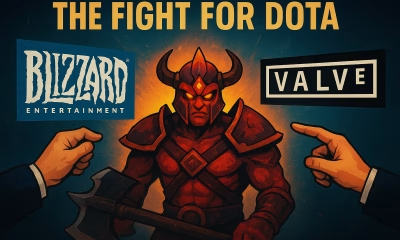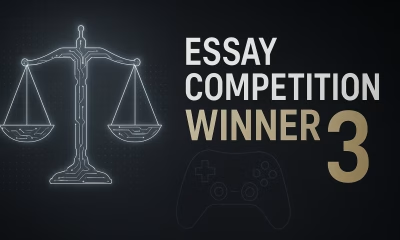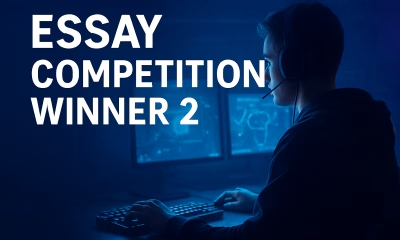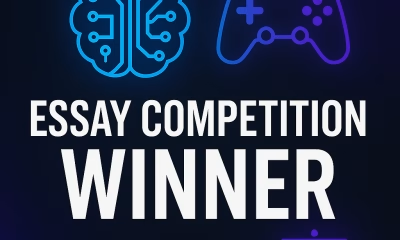General
Esports & FTC: Sponsorship Marketing Regulations
The esports realm, with its skyrocketing popularity and revenue, has inevitably landed on the radar of regulatory entities, notably the Federal Trade Commission (FTC) in the U.S. Tasked with ensuring marketplace fairness and consumer protection, the FTC has set forth regulations addressing the influx of endorsements and advertisements in esports. This piece delves into the implications of these FTC directives on the esports domain.

Deciphering Esports Sponsorship Dynamics
Esports entities, from organizations to players and content creators, heavily rely on sponsorships as a revenue stream. Broadly, these sponsorships fall into two categories: endorsements and advertisements. While endorsements are promotions by influential figures, advertisements are content specifically crafted for marketing purposes.
Sponsorships empower esports teams and organizations by funding player salaries, training amenities, equipment, and promotional activities. This financial backing catalyzes the esports sector’s growth, facilitating the recruitment of elite players, operational expansion, and competitive edge enhancement.
For sponsors, the esports world presents an unparalleled avenue to connect with a tech-forward, digitally-integrated audience receptive to novel offerings. Collaborating with esports entities grants sponsors access to a fervent fanbase, elevating brand visibility and targeting a prized demographic.
Moreover, the esports arena offers a plethora of marketing avenues, from in-game branding and jersey logos to content amalgamation, event backing, and social media campaigns. Such multifaceted promotional opportunities enable sponsors to craft genuine, captivating experiences for esports aficionados, deepening brand loyalty.
However, a pivotal challenge in esports is aligning these invaluable sponsorships with federal endorsement regulations, predominantly overseen by the FTC.
FTC’s Mandate for Transparency
The FTC’s core objective is to champion consumer rights and stimulate fair market competition. It oversees compliance with federal consumer protection laws, targeting deceptive advertising and unjust business tactics.
The FTC’s regulatory purview encompasses endorsements, testimonials, disclosures, misleading claims, and privacy, emphasizing truth, deception prevention, and competitive encouragement. The agency mandates marketers to offer transparent, accurate consumer information, unveil endorser-brand affiliations, eschew deceptive claims, and uphold consumer privacy.
The FTC vigilantly monitors and rectifies marketing malpractices, wielding the power to penalize, issue cessation directives, and advocate for deceived consumers.
FTC’s Disclosure Directives
The FTC has curated guidelines tailored for digital endorsements and advertisements, termed “Guides Concerning the Use of Endorsement and Testimonials in Advertising.” These directives offer clarity on transparent marketing practices. Key highlights include:
- Disclosure Mandates: Esports sponsorships must adhere to FTC regulations by ensuring apt disclosures. Endorsers should transparently reveal any affiliations with advertisers that could compromise their endorsement’s neutrality. Such affiliations encompass monetary rewards, complimentary products, or other perks. These disclosures should be lucid, prominent, and consumer-friendly.
- Digital Endorsements: FTC directives also encompass endorsements on digital platforms, necessitating conspicuous, on-screen disclosures. Solely using hashtags or abbreviations might not suffice.
- Misleading Claims Prohibition: The FTC bars deceptive claims in endorsements. Both advertisers and endorsers must substantiate their claims, avoiding potential consumer deception.
- Celebrity Endorsement Norms: Celebrities, despite their influential stature, are bound by the same disclosure norms, necessitating transparent advertiser affiliations.
- Advertiser Accountability: Advertisers bear the onus of ensuring endorsers’ compliance with disclosure norms, emphasizing the significance of transparent practices.
By adhering to these guidelines, businesses and influencers can foster consumer trust, champion ethical advertising, and sidestep potential FTC legal ramifications.
In the esports context, this translates to mandatory disclosures by players, content creators, and influencers when compensated for product or service promotions. Such disclosures must be transparent, evident, and easily discernible to ensure consumer clarity.
Conclusion
The FTC’s endorsement and advertisement regulations significantly influence the esports sector. By championing transparency and disclosure, the FTC safeguards consumer interests and fosters fair competition. While navigating these regulations might pose challenges, they are instrumental in building trust, nurturing brand-endorser dynamics, and setting industry benchmarks. As esports metamorphoses, stakeholders must prioritize ethical conduct and align with FTC directives to sustain the industry’s momentum and trustworthiness.
Image source: MarTech


















